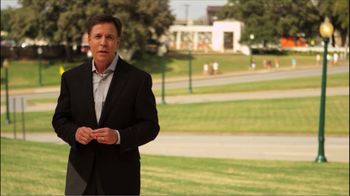Costas, NBCSN Examine Fateful Days in Dallas
The smarter way to stay on top of the multichannel video marketplace. Sign up below.
You are now subscribed
Your newsletter sign-up was successful
Back in 1963, the Dallas Cowboys were hardly America’s Team. Still experiencing the growing pains of an NFL expansion team, the Cowboys were 3-7 entering their Nov. 24 contest against the powerful Cleveland Browns.
But two days before, the world changed as President John F. Kennedy was assassinated and many Americans came to despise Dallas and its pro football club. Bob Costas looks back at the days surrounding the tragedy and its impact on the Cowboys, players and Big D over the years.

Debuting on Nov. 20 at 11 p.m. on NBCSN, the Costas Tonight Special – No Day For Games: The Cowboys and JFK also features the host interviewing two-time Super Bowl winner Roger Staubach, who was the Heisman Trophy quarterback of Navy in their 1963 battle with Army – the subject of CBS Sports Network’s documentary Marching On: 1963 Army-Navy Remembered.
No Day for Games mixes familiar images from America’s first-televised First Family and the events of and around that singular weekend with interviews with 10 Cowboys players, as well as Pittsburgh Steelers chairman Dan Rooney (then a Dallas VP), and historian Michael Beschloss. (Check out a preview here.)
Commentary from Cowboys tight end Pettis Norman and Browns offensive lineman John Wooten set the scenes of a segregated Dallas, which were underscored by some of its radical right denizens’ treasonous sentiments toward Kennedy for his support of the civil rights movement, his non-invasion of Cuba and inaction against the rise of the Berlin Wall. The ill treatment of then U.S. ambassador to the United Nations Adlai Stevenson II and his advice to Kennedy to avoid Dallas are also detailed.
Cowboys players learned of the JFK shooting on the practice field that Friday and later saw Jack Ruby, whose burlesque club some had frequented, pull the trigger on Lee Harvey Oswald on television. Playing football certainly wasn't on the players’ mind, including Hall of Fame defensive tackle Bob Lilly, who said he was willing to punt on the whole season.
Pete Rozelle, in the biggest regret of his tenure as NFL commissioner, acceded to his friend White House Press secretary Pierre Salinger’s belief that JFK would have wanted pro football’s Sunday slate to play out.
The smarter way to stay on top of the multichannel video marketplace. Sign up below.
The show also informs that the lives of the Browns’ coaching staff were threatened; that the far less than capacity crowd at Cleveland’s Memorial Stadium never heard the word "Dallas" from public address announcer; and that fans hurled objects at the Cowboys players, who were instructed to keep their helmets strapped on the sideline, as well as epithets like assassins, murderers and Kennedy killers.
The special also makes the point that over time, the Cowboys’ winning ways -- beginning with a victory over the Browns before a national TV audience on Thanksgiving Day, three years to the day after the post-JFK assassination loss -- began to melt away some of the disdain for Dallas.
Staubach discusses his feelings with Costas about the Army-Navy game that year; how he coined the “Hail Mary” football phrase; the success of the Cowboys in the 1970s; Steve Sabol’s moniker of America’s Team (Philadelphia Eagles linebacker Bill Bergey drilled Staubach on a blitz and said “take that America’s quarterback”); and lamented how a victory over the Pittsburgh Steelers in Super Bowl XII would have changed the perception about team of the decade.
He also talks about his relationship with coach Tom Landry and despite all of the team’s success, how Dallas has still not totally recovered from its association with JFK’s death.
All in all, an interesting hour that you can also catch on Nov. 21 at 1:30 a.m. and 11 p.m.; Nov. 22 at 1 a.m., 6:30 p.m., and 10:30 p.m.; and Nov. 23 at 1:30 a.m. and 10 p.m.
